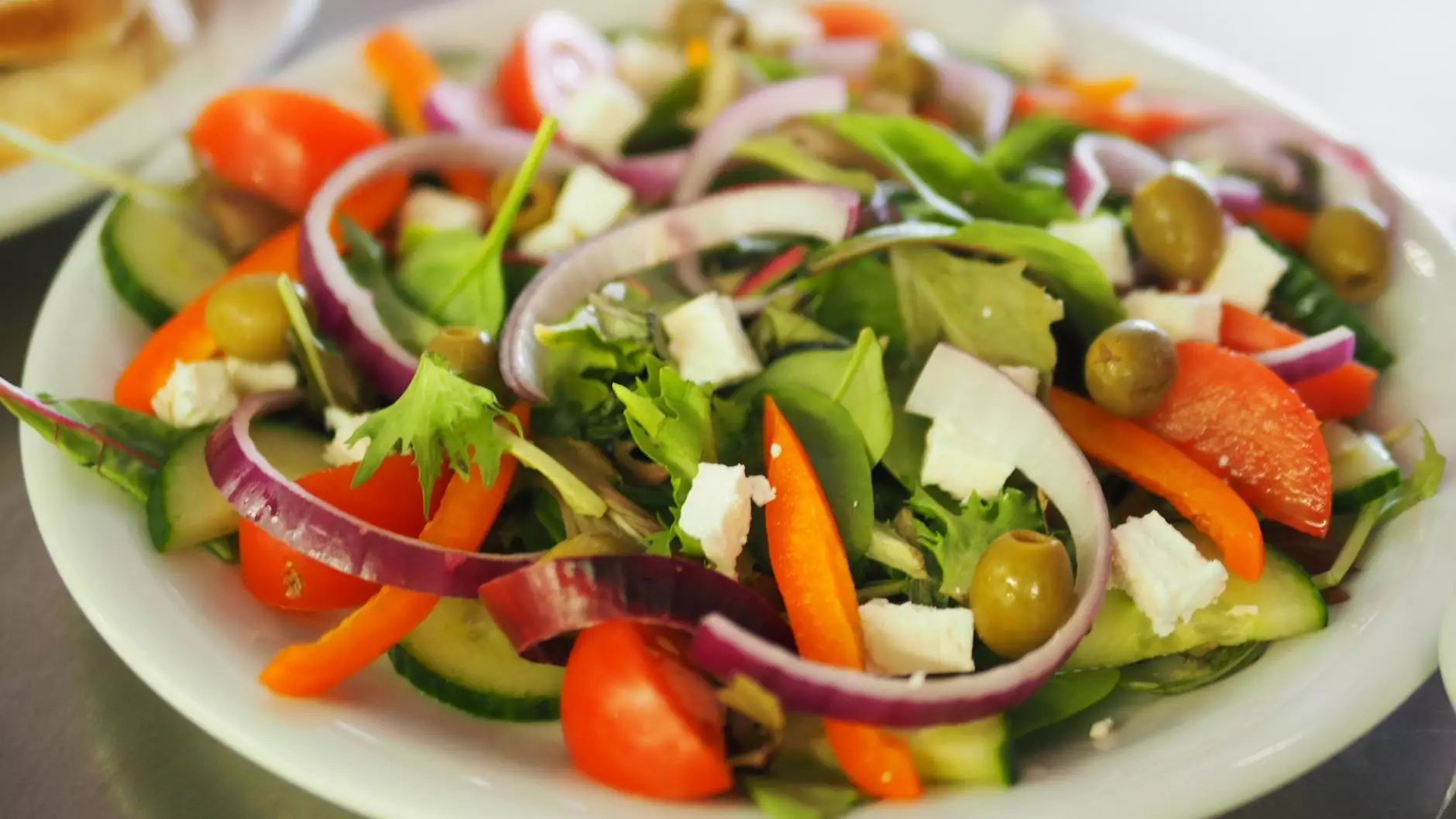The Benefits of Frozen Vegetables in Your Diet

In the contemporary culinary landscape, frozen vegetables have emerged as a key component of many healthy diets. With the rise of fast-paced lifestyles and the growing awareness of nutrition, families and individuals alike have turned towards frozen produce as a viable and healthful alternative to their fresh counterparts. In this article, we will explore the many benefits of frozen vegetables, how they fit into a healthy lifestyle, and numerous ideas to incorporate them into your meals.
Why Choose Frozen Vegetables?
The concept of frozen vegetables dates back to the early 20th century and has evolved significantly since then. But why do so many people prefer them over fresh vegetables? Here are some compelling reasons:
- Preservation of Nutrients: One of the primary benefits of frozen vegetables is that they are often frozen at their peak ripeness. This method preserves the nutrients, flavor, and texture of the vegetables better than fresh produce that has been transported long distances.
- Convenience: Frozen vegetables are pre-washed, cut, and ready to cook. This factor saves valuable time in the kitchen, making meal prep much more straightforward.
- Long Shelf Life: Unlike fresh vegetables that have a limited shelf life, frozen vegetables can be stored in your freezer for months. This component helps reduce waste and allows for easier meal planning.
- Cost-Effectiveness: Frozen vegetables are often less expensive than their fresh counterparts, particularly out of season. This affordability makes it easier to maintain a balanced diet on a budget.
- Availability: As seasons change, so do the types of fresh vegetables available. On the other hand, frozen vegetables provide access to a consistent selection of produce year-round.
How Frozen Vegetables Can Fit Into Your Diet
Integrating frozen vegetables into your meals doesn't have to be daunting. Below are several ways to seamlessly include them in your daily diet:
1. Quick and Easy Stir-Fries
Stir-fries are a fantastic way to create nutritious meals quickly. Simply grab a bag of mixed frozen vegetables, sauté them in a pan with a little oil, and add your choice of protein (such as tofu, chicken, or shrimp) along with some soy sauce or teriyaki sauce. This combination can yield a healthy and vibrant dinner in less than 20 minutes.
2. Smoothies Packed with Nutrients
Frozen vegetables can be an excellent addition to smoothies. Spinach, kale, or mixed greens blended with fruits such as bananas, berries, and a base of yogurt or almond milk can create a nutritious and delicious breakfast or snack.
3. Soups and Stews
Nothing beats a hearty soup or stew on a chilly day. Toss in frozen vegetables while the soup simmers for a nutrient boost without the hassle of chopping fresh produce. Popular choices include carrots, peas, and corn.
4. Healthy Casseroles
Casseroles are perfect for meal prep. Mix frozen vegetables into your favorite pasta or rice casserole recipes. The vegetables will cook effectively during baking, absorbing flavors while providing essential vitamins and minerals.
5. Sides and Salads
Simply steaming frozen vegetables as a side dish is a quick way to boost the nutritional value of your meal. Pair steamed broccoli, green beans, or mixed vegetables with your main dish, or toss them into salads for added texture, color, and health benefits.
Health Benefits of Frozen Vegetables
Aside from their convenience and versatility, incorporating frozen vegetables into your diet can offer numerous health benefits, including:
- Supports Weight Management: Frozen vegetables are low in calories and high in fiber, making them a perfect addition to weight loss plans. They help provide satiety while contributing essential nutrients.
- Improves Digestive Health: A diet high in fiber promotes healthy digestion and regularity. Vegetables, whether fresh or frozen, are an excellent source of dietary fiber.
- Reduces Risk of Chronic Diseases: Regular consumption of vegetables is associated with reduced risks of heart disease, certain cancers, and other chronic illnesses. Their antioxidants and anti-inflammatory properties make them vital in a preventative diet.
- Boosts Immune Function: Many vegetables, including broccoli, bell peppers, and spinach, are rich in vitamins A, C, and E, which are essential for a strong immune system.
Tips for Choosing and Preparing Frozen Vegetables
When shopping for frozen vegetables, here are some tips to ensure you're making healthy and cost-effective choices:
1. Read Labels
Beware of added ingredients. Choose frozen vegetables without sauces or added sugars, which can negate their health benefits.
2. Look for Quality Brands
Not all brands are created equal. Research and choose brands that emphasize quality and organic sources when possible.
3. Don’t Thaw Before Cooking
To maintain the texture and nutrients, it’s best to cook frozen vegetables directly from the freezer. Thawing can lead to sogginess.
4. Experiment with Seasonings
Enhance the flavor of frozen vegetables by experimenting with different herbs, spices, and healthy sauces. This innovation can make your meals exciting and appealing.
Innovative Ways to Cook Frozen Vegetables
Everybody loves variety, and frozen vegetables can be prepared in numerous delicious ways. Here are some innovative cooking methods:
1. Air Frying
Air frying frozen vegetables can provide a crispy texture without excessive oil. Season as desired and cook according to the air fryer’s directions for a healthy snack or side dish.
2. Roasting
Roasting frozen vegetables enhances their natural sweetness and provides a caramelized texture. Toss with olive oil, salt, and pepper, and roast in the oven until golden and tender.
3. Grilling
Use grilling baskets to cook frozen vegetables on your outdoor grill. Just toss them with some olive oil or marinade and grill until they achieve a delightful char.
4. Microwaving
For a quick side, simply microwave frozen vegetables according to package instructions. It’s quick, efficient, and retains a significant amount of nutrients.
Conclusion: Embrace Frozen Vegetables for a Healthier Lifestyle
In conclusion, frozen vegetables are a fantastic addition to any diet, offering flexibility, convenience, and numerous health benefits. As the food landscape continues to evolve, incorporating versatile ingredients like frozen vegetables helps streamline meal preparation while ensuring your nutritional needs are met.
Whether you are a busy professional, a parent juggling family meals, or someone just looking to eat healthier, embracing frozen vegetables can significantly enhance your eating habits. Visit maplesfood.com to explore various frozen food options that suit your dietary preferences, including a wide selection of frozen vegetables, fresh vegetarian, and chicken and meat products for sale online. Start making healthier choices today and enjoy the benefits that come with consuming frozen vegetables!








